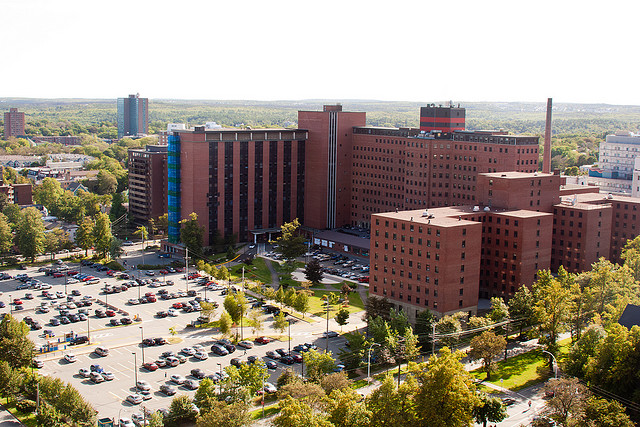No one seemed to know why. Neither side had made a new offer, each side insisted with equal insistence. Nor had there been any concessions or Saul-like conversions on the path to the picket line anyone knew about.
Despite that, the conciliator had called, so they were heeding the call.
Negotiators for Capital Health and Local 97 of the NSGEU are scheduled to begin bargaining again at 8:45 this morning in what seems like a desultory attempt to head off Thursday’s expected nurses’ strike — or say they’d made the attempt.
One hopes that somewhere between the silences, the Tim’s and the stale muffins from the previous weekend’s fruitless, non-negotiations, the two sides will finally discuss the obvious sticking point.
The nurses want Capital Health to implement, over time, mandatory nurse-patient ratios… and that’s non-negotiable. Capital Health says they don’t work… talk to the hand.
Who can say who’s right?
Kim Campbell, our-once-and-never-again prime minister may have been correct when she said — excuse the paraphrase — “collective bargaining is no place to discuss serious issues.” But, from the union’s perspective, what’s the alternative?
They claim there are too few nurses, and those nurses are over-worked and over-stressed. That leads, inevitably, to poorer patient care.
Our new government’s faux fix for what ails our health-care system — combining relatively efficient regional health boards into a more bureaucratic, likely less efficient central one — doesn’t ask the right questions, let alone offer answers.
Our biggest single health-care cost driver is doctors’ fees. Physicians are currently developing strategy for upcoming negotiations with the province over the so-called Master Agreement, and they have already said they want significantly increased compensation.
Although our doctors are among the lowest paid in the country — if you call an average of $250,000 per year low — we also have more doctors per capita than any other province. Do we need that many? Should more of what they do be done by less costly nurses? More of what nurses do be done by LPNs? In community-based collaborative health-care centres?
It’s past time for Stephen McNeil to assume leadership here. Instead of bullying nurses for raising important questions, he should start asking some of those questions himself.
This article first appeared in Stephen Kimber’s Halifax Metro column.
Photo: Stewart Rand/flickr



